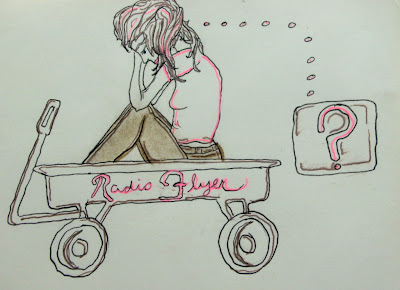Real quick:
On the wagon: you have stopped doing something. (usually drinking alcohol, but anything fun really.)
Off the wagon: you have begun doing this thing again.
BUT....if you add the word "band" it's opposite, pretty much.
On the bandwagon: you have started doing something (that other people are doing)
Off the bandwagon: you have stopped doing something (that other people are doing)
Oh, Phrase Finder: On the wagon' was coined in the USA around the turn of the 20th century. The phrase began as 'on the water-cart', migrated to 'on the water-wagon' and finally to 'on the wagon'.
Suggested explanations of the origin of 'on the wagon' focus on actual wagons that were used to transport people; for example, condemned prisoners who had taken their last drink in this life and were transported to the gallows by wagon. Another story has it that Evangeline Booth, the US Salvation Army National Commander, toured the Bowery slums in a wagon picking up drunks and delivering them to sobriety.
(That's not actually the true origin but it's close and it's pretty funny.)
And what about that bandwagon?
The word bandwagon was coined in the USA in the mid 19th century, simply as the name for the wagon that carried a circus band. Phineas T. Barnum, the great showman and circus owner, used the term in 1855 in his unambiguously named autobiography The Life of P.T. Barnum, Written by Himself, 1855:
And jumping on it?"At Vicksburg we sold all our land conveyances excepting four horses and the 'band wagon'."
Circus workers were skilled at attracting the public with the razzmatazz of a parade through town, complete with highly decorated bandwagons. In the late 19th century, politicians picked up on this form of attracting a crowd and began using bandwagons when campaigning for office.
The transition from the literal 'jumping on a bandwagon', in order to show one's alliance to a politician, to the figurative use we know now was complete by the 1890s. Theodore (Teddy) Roosevelt made a clear-cut reference to the practice in his Letters, 1899 (published 1951):
"When I once became sure of one majority they tumbled over each other to get aboard the band wagon."
And as an extra:
two teenage boys, a.k.a. The Josh + Joe Experience play the Green Day song Off The Wagon, with no lyrics, in a bedroom....or a rec room, or something.

No comments:
Post a Comment